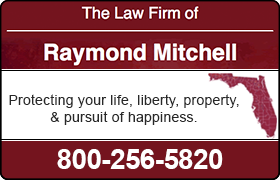Pineland Bankruptcy & Debt Lawyer, Florida, page 2
Sponsored Law Firm
-
 x
x

Click For More Info:
-
The Law Firm of Raymond Mitchell
3717 Del Prado Blvd. South Cape Coral, Florida 33904 » view mapLee County Bankruptcy Lawyer We Help You Survive Financial Attacks
We strive to protect your freedom and rights and provide high quality legal services to you in a professional, respectful, realistic and honest manner.
800-256-5820  Raymond B. Mitchell Cape Coral
Raymond B. Mitchell Cape CoralAttorney At Law - FL, 1994
Regent University School of Law - 1993
 Chapter 7Liquidation
Chapter 7LiquidationA Chapter 7 liquidation proceeding is available to individuals, partnerships, and corporations.
 Chapter 13Reorganization
Chapter 13ReorganizationA Chapter 13 bankruptcy, or "wage earner reorganization" is available only to individuals with regular income.
Robert David Young
Litigation, Civil Rights, Contract, Credit & Debt
Status: In Good Standing Licensed: 38 Years
Mark Christopher Menser
Federal Appellate Practice, Criminal, Constitutional Law, Consumer Bankruptcy
Status: In Good Standing Licensed: 47 Years
Carmen Dellutri
Traffic, DUI-DWI, Bankruptcy, Bankruptcy & Debt, Personal Injury
Status: In Good Standing
James Lewis Goetz
Commercial Real Estate, Construction, Wills, Civil Rights, Bankruptcy
Status: In Good Standing Licensed: 52 Years
Gregory William Goetz
Commercial Real Estate, Trusts, Civil Rights, Credit & Debt
Status: In Good Standing Licensed: 17 Years
Robert Eugene Hamlin
Copyright, Bankruptcy, Family Law, International, Business
Status: In Good Standing Licensed: 12 Years
Steven Klaus Teuber
Civil Rights, Bankruptcy, Construction, Education, Divorce
Status: In Good Standing Licensed: 19 Years
Marshall Lawrence Cohen
Trusts, Estate Planning, Corporate, Bankruptcy
Status: In Good Standing Licensed: 52 Years


 Raymond B. Mitchell Cape Coral
Raymond B. Mitchell Cape Coral Chapter 7Liquidation
Chapter 7Liquidation
